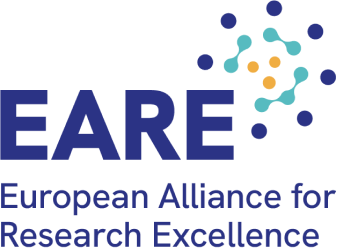
EARE’s answer to the European Commission’s Inception Impact Assessment on the legislative framework for the governance of common European data spaces
The European Alliance for Research Excellence, a coalition of companies and research organisations formed in 2017 committed to the future of innovation and R&D in Europe, warmly welcomes the European Commission’s ambitions outlined in its Data Strategy to create common and sectoral European data spaces.
European data spaces will be key to encouraging the development of Artificial Intelligence (AI) in Europe, which offers vast potential for economic growth and can help generate insights to address some of society’s biggest challenges, from healthcare to the environment. There is a broad recognition from regulators and industry that making data more open and accessible is critically important to foster
collaboration and help drive European research and competitiveness in AI. Opening up access to data for better research outcomes, such as making progress in medical science, and supporting Europe’s ability to bring new innovative products and services to the market for the benefit of consumers, is achievable and preferable to data being withheld by a few public or private organizations.
The creation of common European data spaces aiming to incentivise data sharing by creating clear rules for access and use of data therefore appears timely and necessary. Policy efforts should concentrate on creating coherent and easy-to-understand frameworks in order to increase stakeholders’ trust and encourage them to access and collaborate with data in an effective, fair and non-discriminatory manner, as well as open up and re-use data across Europe, in line with European values, including privacy rules.
Common data spaces will only be functional if other relevant EU-legislation is properly implemented. We call on the EU to support the effective and harmonized implementation of policies that impact the availability and use of data, such as the EU Copyright Directive’s Text and Data Mining exception, which will ease access to data across Europe, and the Directive on Open Data and Re-Use of Public Sector
Information, which will decrease barriers and encourage access to public sector and publicly-funded information.
We agree with the Commission’s identification of four thematic clusters, which we believe if approached the right way can help lift existing barriers to open data. More specifically, on points i) and iii):
– i) Unlocking the value from data held by public sector bodies: In order to foster access and re-use of data held by the public sector, we support the identification of specific high-value datasets that should be made available free-of-charge, in a machine-readable format, and provided through an application programming interface (API). We also strongly support policy options that would provide easy and secure access to publicly-held data and datasets in a harmonised way across Europe;
– ii) Ensuring common standards and interoperability: Data sharing should be based on the principles of interoperability of data sets and in mutual reciprocity, while maintaining an appropriate balance between public and private interests. As outlined in the IIA, established mechanisms and processes for technical standardisation already exist, and we would strongly encourage the Commission to support these efforts, be they industry-driven, or happening within inter-governmental organisations (ISO), by encouraging stakeholder dialogue to
guarantee broad uptake of existing standards;
As the European Commission considers various approaches to the definition of common data spaces, we would like to reinforce the need to consider collaboration models that allow organizations to share more data while maintaining contractual control over data or without having to necessarily disclose data. These can include innovative governance structures (data trusts, data cooperatives or data
commons), effective legal agreements that facilitate access to data (data sharing agreements), and the use of technologies that help protect privacy and strengthen security.
Submission available online here. Download the full answer here.


